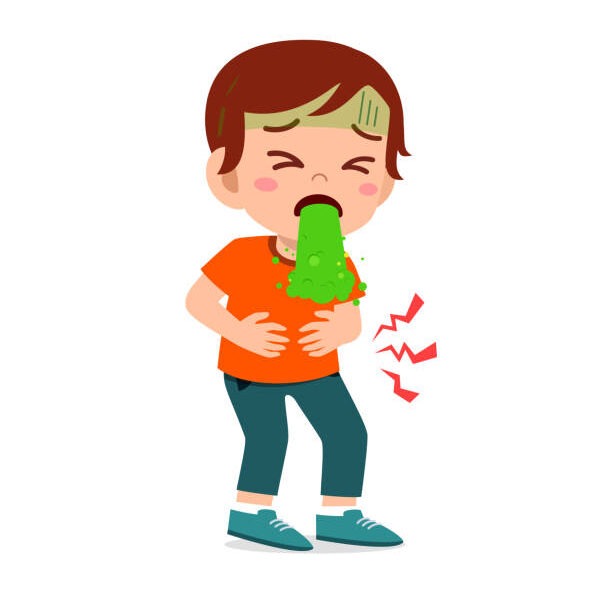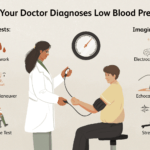Nausea and vomiting are common symptoms that can affect anyone at any age. They are not diseases by themselves, but rather signs of an underlying problem. Nausea is the feeling of wanting to throw up, while vomiting is the act of expelling the contents of the stomach through the mouth. Nausea and vomiting can have various causes, ranging from mild to serious. In this blog post, we will discuss the causes, symptoms and treatment of nausea and vomiting, as well as some tips on how to prevent and cope with them.
What causes nausea and vomiting?
Nausea and vomiting can be caused by many different factors, but some of the most common ones are:
• Infections: Viruses, bacteria and parasites can infect the digestive system and cause inflammation, irritation and increased fluid secretion. Some of the most common infections that cause nausea and vomiting are colds, flu, ear infections, strep throat, bronchitis and urinary tract infections. These infections can be transmitted through contact with infected people, animals or objects, or through contaminated food or water.
• Food poisoning: Food poisoning occurs when you eat food that is spoiled, contaminated or toxic. This can cause nausea, vomiting, diarrhea, abdominal cramps and fever. Some of the common causes of food poisoning are salmonella, E. coli, campylobacter and norovirus. Food poisoning can be prevented by practicing good hygiene, cooking food thoroughly and storing food properly.
• Motion sickness: Motion sickness is a condition that occurs when your brain receives conflicting signals from your eyes, ears and body about your movement and position. This can cause nausea, vomiting, dizziness and sweating. Motion sickness can be triggered by traveling in a car, boat, plane or amusement park ride. Motion sickness can be prevented by sitting in the front seat or near a window, looking at the horizon, avoiding reading or watching screens and taking medication before traveling.
• Pregnancy: Pregnancy is a common cause of nausea and vomiting in women, especially in the first trimester. This is also known as morning sickness, although it can occur at any time of the day. The exact cause of pregnancy-induced nausea and vomiting is unknown, but it may be related to hormonal changes, increased sensitivity to smells or low blood sugar. Pregnancy-induced nausea and vomiting usually goes away by the second or third trimester.
• Medications: Some medications can have nausea and vomiting as a side effect or interact with the normal bacteria in the gut. Some of the common medications that can cause nausea and vomiting are antibiotics, antihistamines, anticonvulsants, immunosuppressants, chemotherapy drugs and nonsteroidal anti-inflammatory drugs (NSAIDs).
• Other causes: Nausea and vomiting can also be caused by other factors such as stress, anxiety, alcohol consumption, excessive caffeine intake, surgery, radiation therapy, or certain diseases such as diabetes, hyperthyroidism, migraine, gastroenteritis, appendicitis, gallstones, Crohn’s disease, ulcerative colitis or cancer.
What are the symptoms of nausea and vomiting?
The main symptoms of nausea and vomiting are having a feeling of wanting to throw up and expelling the contents of the stomach through the mouth. Other symptoms may include:
• Loss of appetite
• Dehydration
• Dry mouth
• Thirst
• Dizziness
• Headache
• Fatigue
• Abdominal pain or cramps
• Fever or chills
• Blood or bile in the vomit
How is nausea and vomiting diagnosed?
Nausea and vomiting are usually diagnosed based on the history of symptoms and a physical examination. In some cases, additional tests may be needed to identify the cause of nausea and vomiting or rule out other conditions. These tests may include:
• Blood tests: To check for signs of infection, inflammation or dehydration.
• Urine tests: To check for urinary tract infections or kidney problems.
• Stool tests: To check for intestinal infections or parasites.
• Chest X-rays: To check for lung infections or pneumonia.
• CT scans or MRI scans: To check for brain infections or tumors.
How is nausea and vomiting treated?
The treatment of nausea and vomiting depends on the cause and severity of the condition. Some general measures that can help with nausea and vomiting include:
• Drinking plenty of fluids: This helps prevent dehydration and replace the fluids and electrolytes lost through vomiting. Water, broth, juice or oral rehydration solutions are good choices. Avoid drinks that contain caffeine, alcohol or sugar as they can worsen nausea or irritate your stomach.
• Eating bland foods: This helps reduce irritation and inflammation in the digestive system. Foods such as crackers, toast, soup, yogurt, and fruits are easy to digest and can help soothe your stomach. Avoid foods that are spicy, fatty, fried, dairy, or high in fiber as they can aggravate your symptoms.
• Taking over-the-counter medications: Some medications such as dimenhydrinate (Dramamine) or meclizine (Bonine) can help prevent or treat motion sickness by reducing the signals from your inner ear to your brain. Some medications such as bismuth subsalicylate (Pepto-Bismol) or loperamide (Imodium) can help treat diarrhea by coating the lining of your stomach or slowing down the movement of your intestines. Some medications such as acetaminophen (Tylenol) or ibuprofen (Advil) can help reduce fever or pain that may accompany nausea and vomiting. However, these medications should not be used for more than two days without consulting your healthcare provider, as they may have side effects such as liver damage, stomach bleeding, or kidney problems. Do not give aspirin to children under 18 years old, as it may cause a rare but serious condition called Reye’s syndrome.
• Seeking medical attention: If your nausea and vomiting are severe, persistent, or accompanied by other symptoms such as blood in vomit, severe abdominal pain, chest pain, shortness of breath, severe dehydration symptoms (such as dry mouth,thirst, dizziness, or reduced urine output), You ought to speak with your doctor as soon as possible. If you have a bacterial infection, you may require antibiotics. or other medications if you have an inflammatory or hormonal condition.
How can nausea and vomiting be prevented?
Some tips to prevent nausea and vomiting include:
• Practicing good hygiene: Washing your hands with soap and water before eating or preparing food, after using the bathroom, and after touching sick people or animals can help prevent the spread of germs that cause infection.
• Eating safe food: Avoiding raw or undercooked meat, eggs, seafood, or dairy products can help prevent food poisoning by bacteria such as salmonella or E. coli. Also avoiding foods that are spoiled, moldy, or have been left out for too long can help prevent foodborne illness.
• Traveling wisely: When traveling to developing countries where sanitation standards may be low, it is advisable to follow the advice above regarding water and food safety. Also taking prophylactic antibiotics before traveling may help prevent traveler’s diarrhea caused by certain bacteria. However, this should only be done under a healthcare provider’s supervision, as antibiotics can have side effects such as allergic reactions or resistance.
• Staying hydrated: Drinking enough fluids throughout the day can help prevent dehydration and heat exhaustion which can cause nausea and vomiting. Avoid exposure to extreme heat or sun without proper protection such as hats sunglasses and sunscreen.
Conclusion
Nausea and vomiting are common symptoms that can affect anyone at any age. They are not diseases by themselves but rather signs of an underlying problem. Nausea and vomiting can have various causes ranging from mild to serious. Nausea and vomiting can also cause other symptoms such as loss of appetite dehydration dizziness headache fatigue abdominal pain fever blood in vomit Nausea and vomiting are usually diagnosed by taking your body temperature with a thermometer Nausea and vomiting are usually treated by drinking plenty of fluids eating bland foods taking over-the-counter medications seeking medical attention if needed Nausea and vomiting can be prevented by practicing good hygiene eating safe food traveling wisely staying hydrated.



